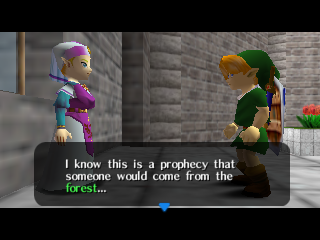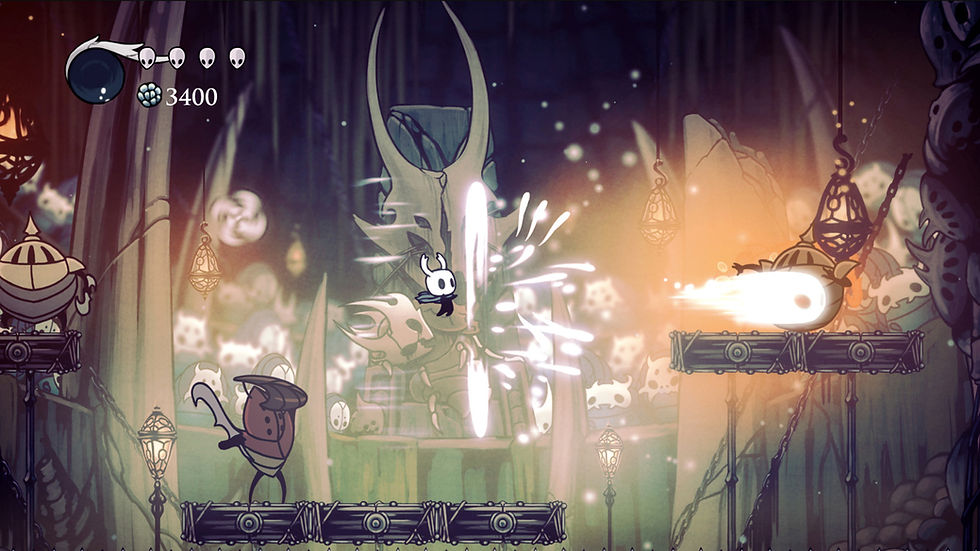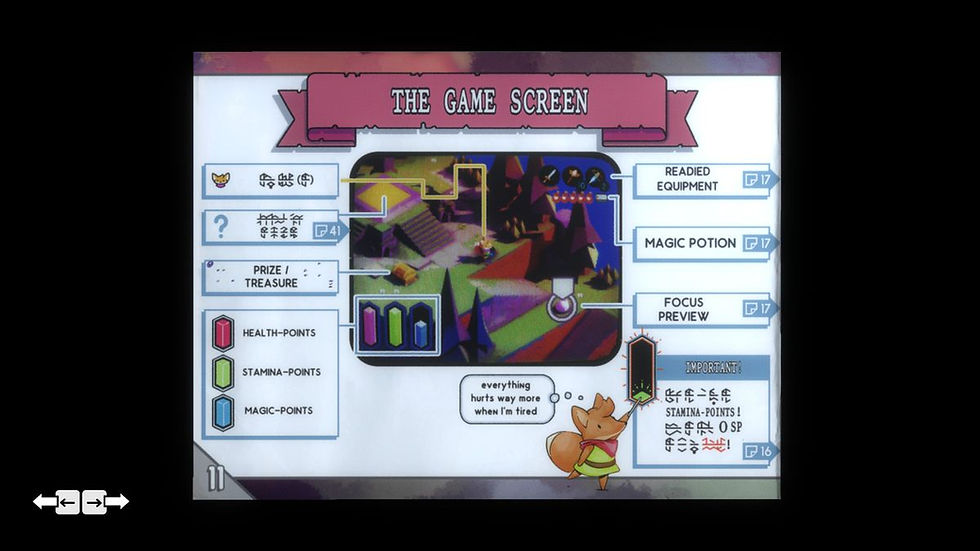Why Mystery Still Matters in Games
- Kelly Gowe
- May 26
- 5 min read
Updated: May 28
"It's a secret to everybody."
Moblin, The Legend of Zelda (1986)
It used to mean something when a game gave you nothing. No quest log. No blinking objective. Just a weird cave, a cryptic line like that one, and a feeling that maybe something big was happening, even if you could not quite explain it yet.
You were supposed to be confused. That was part of the fun. In those early Legend of Zelda games, you had no direction and no big exposition dump. Just a sword, some oddly shaped trees, and a Moblin handing you rupees with a cryptic bribe to keep your mouth shut. And somehow, that one line said more about the magic of old-school gaming than a ten-minute cutscene ever could.
Back then, games trusted you to figure things out. Or at least fumble your way toward something. They were full of secrets that weren’t even marked as secrets. Maybe they were behind a waterfall. Maybe tucked away in a random bush. Maybe they only triggered at night, on the third day, if you were wearing a certain mask and holding a chicken. You get it.
Today, things are different. Lore is still around, but a lot of the mystery feels like it’s been pre-packaged. Developers now feel the pressure to explain everything. Every war. Every faction. Every god and their siblings. You open the menu and find a codex with fifteen tabs and four volumes. Skip it, and you might miss half the plot.
That’s not inherently bad. In fact, if you’re someone like me, it can be helpful. When I get stuck in Stardew Valley, I use a guide to remember which crops make the most gold in summer. If a puzzle in a Metroidvania refuses to give, I’ll Google it. There’s no shame in that. Sometimes you just want to get unstuck. Sometimes you want to optimise. And sometimes, the fun comes from filling in the blanks with other players.
But the difference is in how the mystery is handled in the game itself. Older titles didn’t expect you to have a wiki open. They didn’t build around that. They just… trusted you to poke around. The lore felt hidden, waiting to be discovered, not dumped all at once. That feeling of earning something? That sticks.
Ocarina of Time is a perfect example. The main story is clear enough, but the real magic is in the details you’re never told directly. Castle Town filled with Redeads. The Windmill Man’s music. The bottom of the well. The Shadow Temple’s ominous whispers. It gave you pieces, but not the whole puzzle. You had to connect the dots.

Twilight Princess leaned even harder into mood. The Twilight Realm was alien, sad, and beautiful all at once. Midna said just enough to make you care but never enough to give everything away. You were left with questions. And that made the answers more rewarding.
Even Kirby understood this. For all its cute aesthetics, some of those final bosses were downright nightmarish. Cosmic eyes. Bleeding planets. Eternal entities wrapped in lore that you’d only find by finishing the game, then reading between the lines. The horror wasn’t explained. It just happened. And you dealt with it.
These games didn’t need to shout about their lore. They let it simmer. Let it hum beneath the surface.
That kind of mystery isn’t gone, but it’s rarer now. Many modern games walk you through every narrative thread. Again, not a bad thing. Big cinematic games can be incredible. Emotional, powerful, even profound. But it’s a different experience. More like watching a show. Less like discovering something that wasn’t meant for you.
What makes mystery powerful is that it’s shared. Not in a cutscene. In conversation. In message boards. In late-night texts like “Hey, did you see what happens if you sleep by the waterfall in winter?” That’s when you start pulling out the guides. Not to ruin the magic, but to chase it.
And thankfully, some games today still deliver on that feeling.
Horizon Zero Dawn gives you spectacle and clarity, but also big, simmering questions. Who is Aloy? What came before? Why are the machines acting like this? The answers come slowly, through exploration and careful pacing. It rewards curiosity, not just completion.

Dead Cells has no spoken words and barely any exposition, yet its world feels lived-in. The more you die and come back, the more you notice the remnants of something bigger. Broken cells. Discarded journals. A vague sense of repetition and decay. You can play for hours without needing to know why. But the intrigue lingers.
Hollow Knight is an entire thesis on how to build atmosphere without over-explaining. The lore is buried in bones, hidden in whispers, left in the margins of your journey. The fallen kingdom, the broken vessels, the echoes of past lives. You don’t need a guide to love it, but it’s the kind of game that makes you want to fall down the wiki rabbit hole just to stay in that world a little longer.

Tunic takes that even further. It literally uses a fake language to block you from understanding too early. You piece together a manual from torn pages. It’s strange and frustrating and beautiful. You don’t unlock power by following instructions. You unlock it by realising the instructions were there all along, just waiting for you to see them differently.

Even a game like Outer Wilds dares you to learn by doing. You are not chosen. You’re just curious. And that’s the best kind of protagonist. One who keeps asking questions even after the sun explodes.
There are others. Sable. Return of the Obra Dinn. Norco. Elden Ring. Games that let you breathe. Wander. Wonder. Games that do not build their lore into loud declarations, but into environments and choices and feelings you can’t quite explain.
The thing is, mystery and clarity can co-exist. Walkthroughs and wonder can live side by side. I am not here to pretend I don’t sometimes run straight to a guide when I’m stuck. I do. And sometimes that enhances the experience. But I also think there’s something beautiful in that moment before you look. When you stop, squint at the screen, and ask yourself what you might be missing.
Lore does not need to be hidden. But sometimes it’s more powerful when it is quiet. When the game does not point and say look here, but instead nudges you gently toward something you might not understand until later. Or maybe never.
Because the best moments in games are not always the boss fights or the major reveals. Sometimes it’s just a feeling. A line you don’t forget. A shadow that shouldn’t be there. A secret you’re pretty sure you found, even if no one else mentions it.
And yeah, sometimes the secret really is just a Moblin in a cave slipping you some rupees and telling you to keep quiet.
Sometimes, that’s all it takes.
When a mystery lingers, the magic tends to stay with it. Just a strange line, a quiet cave, and that feeling that maybe you’re not meant to understand everything.
At least not right away.






